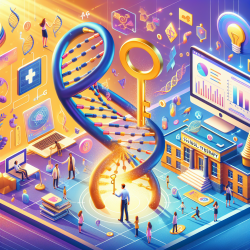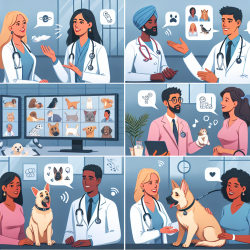The landscape of healthcare is constantly evolving, with new technologies and services emerging at a rapid pace. One of the most debated innovations in recent years is direct-to-consumer (DTC) genomics. This service allows individuals to access their genetic information without the need for a healthcare provider as an intermediary. While this has sparked controversy, it also presents unique opportunities for practitioners looking to improve their skills and expand their offerings.
The Debate: Autonomy vs. Regulation
The central debate surrounding DTC genomics revolves around personal autonomy and the potential risks associated with unsupervised access to genetic information. Critics argue that without proper regulation, consumers may make uninformed decisions that could harm their health or lead to unnecessary anxiety. Conversely, proponents highlight the empowerment and autonomy that comes from having access to one's genetic data.
The research article "Direct-to-consumer genomics on the scales of autonomy" delves into this debate by examining whether DTC genomic services threaten or enhance personal autonomy. The study uses Joseph Raz's account of personal autonomy, which emphasizes choice from a range of valuable options.
Implementing Research Outcomes in Practice
As a practitioner, understanding the implications of DTC genomics can help you guide your clients more effectively. Here are some ways you can incorporate these insights into your practice:
- Educate Yourself and Your Clients: Stay informed about the latest developments in DTC genomics through conferences, publications, and webinars. Educate your clients about the benefits and limitations of these services.
- Focus on Informed Consent: Ensure that your clients understand the potential outcomes of genetic testing and are making informed decisions free from coercion.
- Expand Your Services: Consider offering genetic counseling or partnering with DTC genomics companies to provide comprehensive support to your clients.
The Future of DTC Genomics
The future of DTC genomics hinges on finding a balance between autonomy and regulation. The research suggests that while there are valid concerns about consumer protection, these are not insurmountable barriers. By advocating for appropriate regulatory conditions, practitioners can help shape a future where DTC genomics enhances personal autonomy without compromising safety.
If you're interested in exploring this topic further, I encourage you to read the original research paper: Direct-to-consumer genomics on the scales of autonomy.










